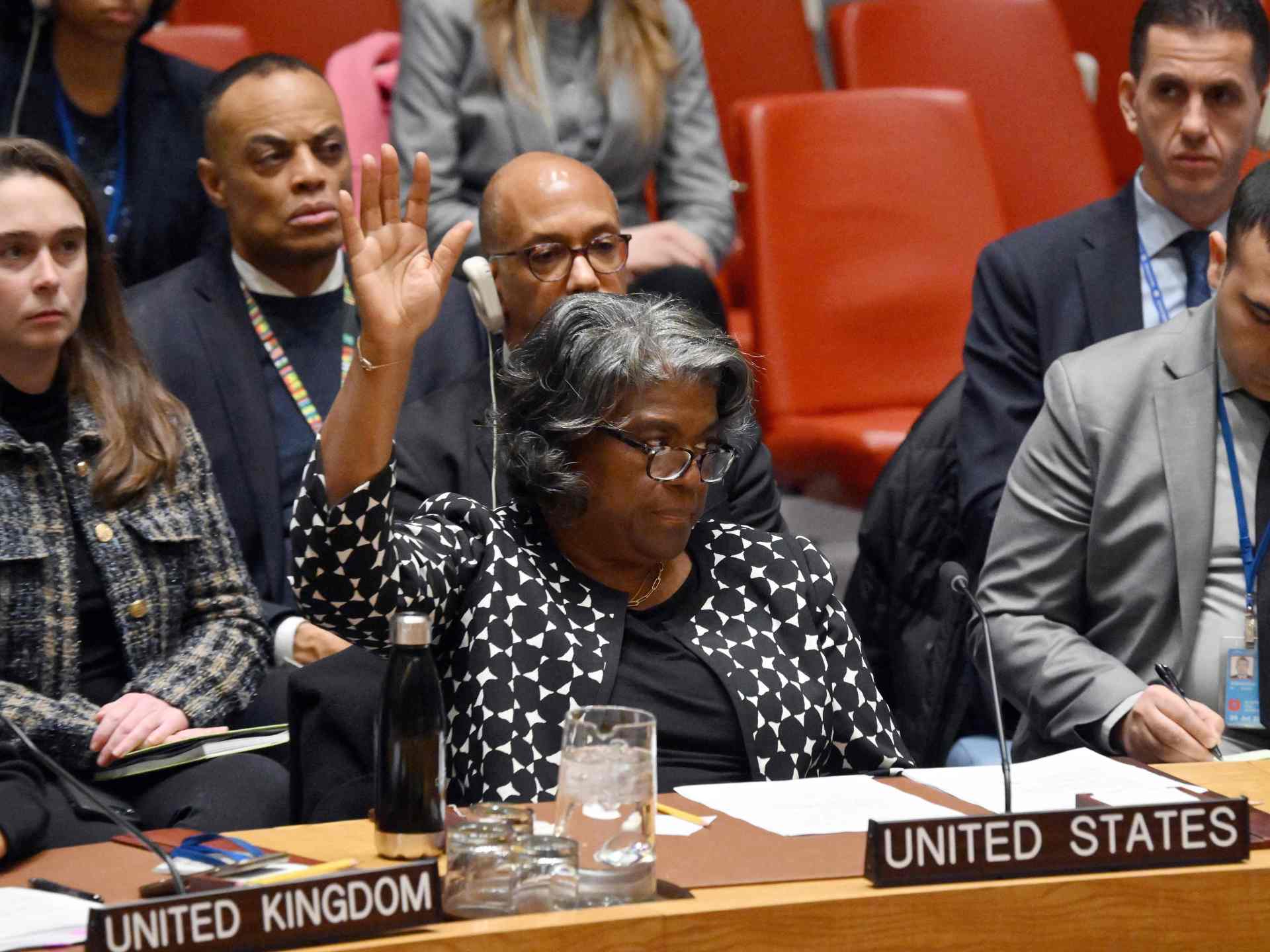America used its veto power in the Security Council 3 times against draft resolutions on the Israeli war on Gaza (French)
Washington -
Hours after the United States failed to pass its draft resolution in the Security Council regarding a ceasefire in Gaza, US Secretary of State Anthony Blinken said from David Ben Gurion Airport before boarding the plane back to Washington, “The resolution received very strong support, but Russia and China objected to it.”
11 countries voted for the resolution, while 3 countries rejected it: Russia and China, which have veto power, in addition to Algeria, and Guyana abstained from voting.
The vote came at a time when the United States is increasingly putting pressure on its ally Israel regarding Gaza, as Blinken ended a visit there during which he held talks that focused on humanitarian aid, and Tel Aviv’s insistence on launching a ground attack in Rafah, where more than a million Palestinians have been displaced over the past five months.
The American draft resolution comes after the administration of President Joe Biden used its veto power against several previous draft resolutions in the Security Council calling for an immediate ceasefire.
The draft resolution coincided with Blinken's (left) visit to Israel to discuss humanitarian aid and ground intervention in Rafah (Anatolia)
The gap is narrowing
Tarita Parsi, Vice President of the Quincy Institute in Washington, tweeted on the X platform, commenting on the failure of the American project by saying, “The voice of Algeria - whose representative announced that he represents not only his country, but the Arab world as a whole - against the American draft resolution in the United Nations regarding Gaza is more important.” From the Russian and Chinese veto.
Attention is currently turning to Doha, which is hosting negotiations to resolve the crisis and trying to reach a deal to stop the war.
The rejection of the American decision came at a time when the head of Israeli intelligence (Mossad), David Barnea, headed to Doha to meet with his counterparts at the CIA, William Burns, and Abbas Kamel, the head of Egyptian intelligence, after the United States said that the “gap” in the ceasefire talks between Israel The Islamic Resistance Movement (Hamas) is “narrowing.”
Washington is seeking to reach a deal under which the fighting will be halted for a period of 6 weeks, with the release of all Hamas hostages and prisoners, and an increase in the entry of aid into the Gaza Strip.
Blinken looked positively at his country’s obtaining the support of 10 countries in the Security Council, and added, “Obtaining such a strong vote despite the veto power of two permanent members of the Security Council, once again, is evidence and manifestation of the commitment and conviction of countries around the world, and no "Especially in the Security Council to find out how to reach a ceasefire and release the hostages."
Impunity
Russia's ambassador to the United Nations, Vasily Nebenzia, denounced the American project, describing it as a "hypocritical initiative" and "watered-down formulation" regarding the ceasefire, as it does not address the need to save the lives of Palestinian civilians. He stressed that the draft resolution was drafted taking into account American political interests and ensuring Israel's impunity gives it an effective green light to launch a military operation in Rafah, in addition to serving the interests of the US electoral administration.
After the vote and the failure of the resolution, the US Ambassador to the United Nations, Linda Thomas-Greenfield, defended the resolution, and said, “Russia and China vetoed the resolution for two reasons: they refused to condemn Hamas, and because they simply did not want to vote in favor of a resolution drafted by the United States, they would rather see us We fail to see this council succeed.”
The American draft resolution stipulated that a ceasefire is imperative to protect civilians, but it did not demand an immediate cessation of fighting, while it called for expanding the entry of aid distributed to more than 2 million Palestinians facing the risk of famine.
Before voting on the resolution and its failure, spokesman for the United States Mission to the United Nations, Nate Evans, said - in a statement - that the United States “has been working seriously with Council members over the past few weeks on a resolution that would unequivocally support the ongoing diplomatic efforts aimed at... Securing an immediate ceasefire in Gaza as part of the hostage deal.”
Israel says that 130 detainees remain in Gaza, and reports suggest that 34 of them died in captivity due to Israeli bombing.
Source: Al Jazeera

